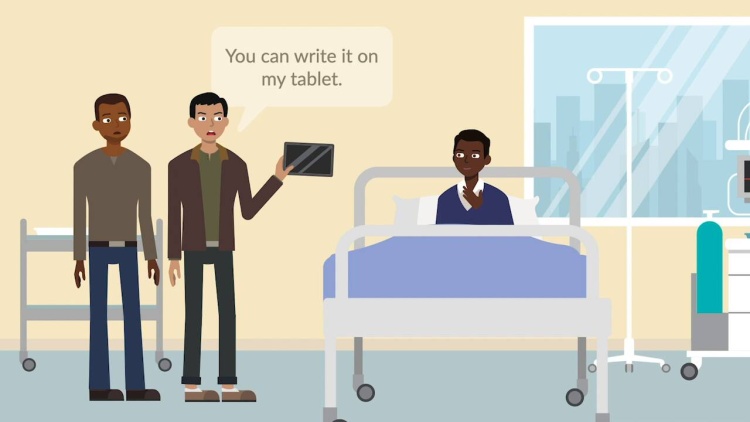In re Estate of Castro
Lorain County Court of Common Pleas
Ct. of Com. Pleas, Prob. Div., Lorain Co., Ohio, No. 2013ES00140 (June 19, 2013)

- Written by Eric Cervone, LLM
Facts
Javier Castro was admitted to the hospital and, because he refused a blood transfusion, knew that his death was imminent. Javier thus had a conversation with his brothers, Miguel and Albie, about preparing a will. Because they did not have any paper or pencil, Albie suggested that the will be written on his tablet computer. Javier dictated what he wanted to include in his will, and Miguel handwrote what Javier said into his tablet, using the tablet’s stylus pen. Miguel and Albie both testified that each section was read back to Javier and that the whole document was also read back to Javier. Albie and Miguel testified that Javier had signed the will in their presence. Javier’s nephew also testified that Javier signed the will in his presence. Javier’s niece testified that Javier told her he had signed the will on the tablet. Two other witnesses offered similar testimony. Javier died a short time later. Miguel presented a printed copy of the will in court, including the signatures of Javier, Miguel, Albie, and Javier’s nephew. The issue was brought before the court as to whether (1) the will constituted a signed writing as defined by state law, and (2) sufficient evidence was presented that this was the last will and testament of Javier.
Rule of Law
Issue
Holding and Reasoning (Walther, J.)
What to do next…
Here's why 907,000 law students have relied on our case briefs:
- Written by law professors and practitioners, not other law students. 47,100 briefs, keyed to 996 casebooks. Top-notch customer support.
- The right amount of information, includes the facts, issues, rule of law, holding and reasoning, and any concurrences and dissents.
- Access in your classes, works on your mobile and tablet. Massive library of related video lessons and high quality multiple-choice questions.
- Easy to use, uniform format for every case brief. Written in plain English, not in legalese. Our briefs summarize and simplify; they don’t just repeat the court’s language.





